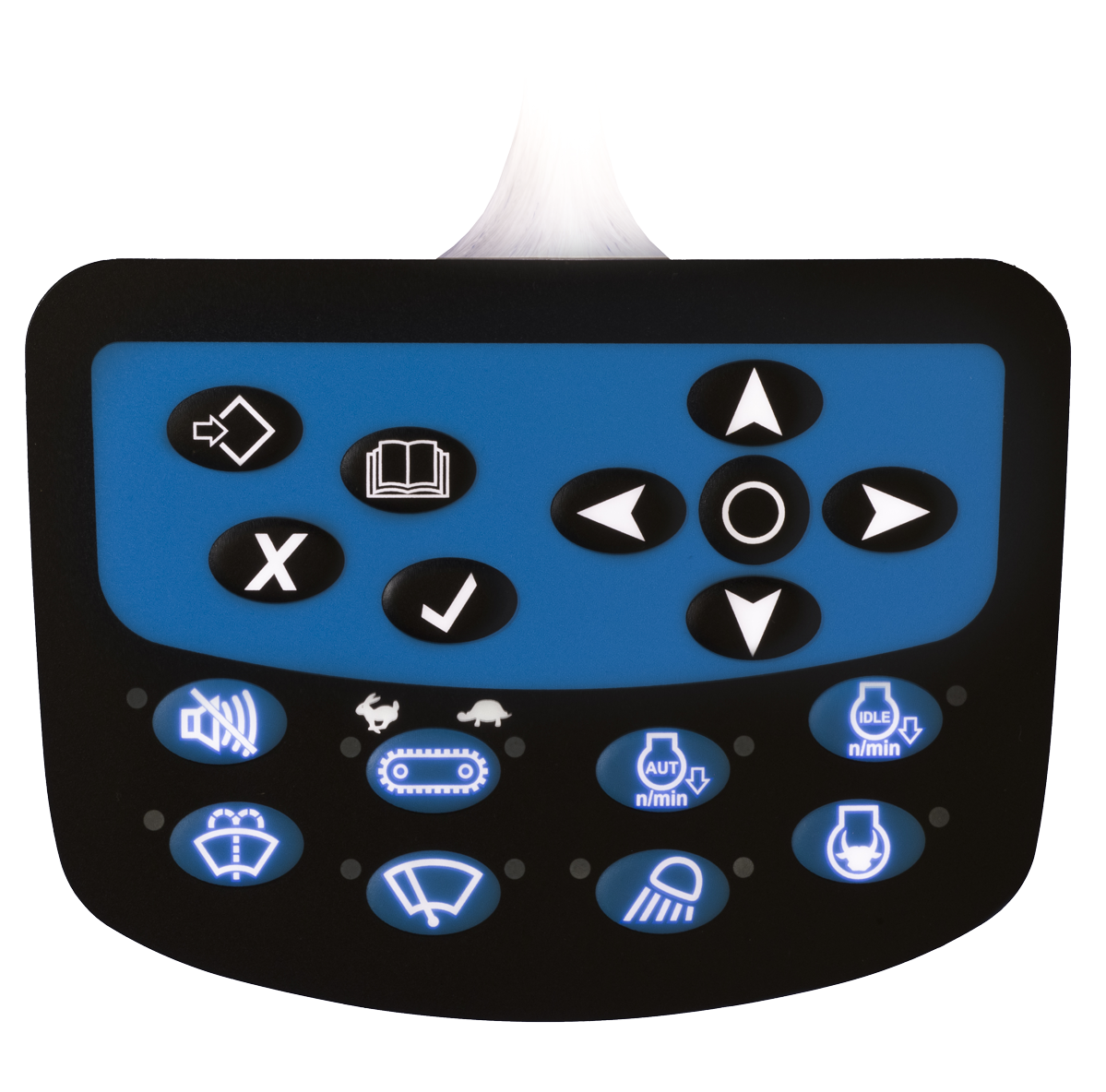Ensuring Quality and Longevity with Membrane Switches in Electronics
Ensuring Quality and Longevity with Membrane Switches in Electronics
Blog Article
Comprehending the Value of Membrane Switches in Interface
Membrane buttons are important parts in the layout of efficient customer interfaces, helping with not only performance yet also boosting visual charm and individual interaction. Their distinct features, such as resistance to customizable layouts and environmental aspects, make them appropriate for a varied variety of applications throughout numerous sectors. As we discover the future patterns and various advantages connected with Membrane modern technology, it becomes clear that these switches are greater than simply elements; they stand for a merging of advancement and usefulness. The effects of this technology on individual experience deserve analyzing better.
What Are Membrane Switches?

The spacer layer, which has sticky homes, allows for the splitting up of the circuit layer from the overlay, making sure that the button continues to be in a non-activated state until pressed. When pressure is put on the overlay, it presses the spacer layer, linking the void and finishing the circuit in the underlying layer. This design not only lowers the physical room required for traditional mechanical buttons yet also boosts the resilience of the tool, as Membrane buttons are generally immune to dirt, dampness, and other environmental elements.
Commonly discovered in applications varying from consumer electronics to medical tools, Membrane buttons are essential to modern-day technology, giving a easy to use and reliable interface that lines up with modern style needs.
Benefits of Membrane Switches
While various button modern technologies exist, Membrane Switches deal distinctive advantages that make them especially preferable in various applications. Among the key benefits of Membrane switches is their compact style, which permits space-saving applications in tools where property is restricted. Their thin account not only boosts visual appeal yet also assists in lightweight building and construction.
One more substantial benefit is their resistance to ecological elements. Membrane switches are generally secured versus wetness, dust, and impurities, making them optimal for usage sought after settings, such as clinical devices and commercial tools. This sturdiness prolongs the lifespan of the switch, reducing upkeep costs and improving dependability.
Moreover, Membrane buttons can be tailored to meet details style requirements, incorporating one-of-a-kind graphics and shades that improve individual interaction. Their tactile feedback choices can additionally be customized to offer a gratifying user experience. Furthermore, Membrane buttons are cost-efficient, particularly in high-volume applications, as they can be generated effectively.
Applications in Various Industries

In the consumer electronic devices sector, Membrane buttons are widespread in tools such as microwaves, washing devices, and remote controls. Their tactile responses and aesthetic options improve individual experience while supplying a streamlined, modern-day look. In addition, automobile manufacturers make use of Membrane buttons in dashboard controls and infomercial systems, where room is restricted, and user involvement is vital.
Additionally, the industrial field leverages Membrane switches in control panels for machinery and devices, enabling intuitive procedure in commonly rough atmospheres. Their resistance to chemicals and moisture guarantees durability and reliability in these applications. On the whole, the adaptability of Membrane Switches adds dramatically to their extensive usage, making them important in numerous technical domains.
Style Considerations for Membrane Switches

When making Membrane buttons, a number of key considerations should be taken right into account to make sure optimal performance and user experience. Firstly, the option of materials is important; selecting long lasting, high-quality substrates can boost the button's longevity and resistance to environmental aspects such as moisture and temperature changes.
Second of all, the design of the visuals overlay must focus on quality and convenience of use. Icons and text have to be understandable, and the format should assist in instinctive communication (membrane switches). Furthermore, tactile feedback is vital; incorporating a tactile dome or various other systems can boost the customer experience by providing physical verification of activation
An additional essential aspect is the button's electrical efficiency. Developers need to make sure that the conductive traces are correctly designed to minimize resistance and prevent signal disturbance. This involves examining the called for actuation pressure and ensuring compatibility with the electronic components they will interface with.

Future Trends in Membrane Innovation
As technology proceeds to breakthrough, Membrane buttons are poised to advance dramatically, driven by developments in products and producing methods. One arising trend is the incorporation of sophisticated materials, such as flexible substrates and conductive inks, which boost longevity and reduce the overall weight of Membrane buttons. These products not only improve the responsive response this article but likewise permit for the style of buttons that can withstand harsher ecological conditions.
Additionally, the combination of touch-sensitive modern technologies is changing standard Membrane Switches into even more interactive customer interfaces. Capacitive touch sensing units installed within Membrane button panels can supply an extra receptive and user-friendly user experience, aligning with the expanding need for smooth, modern-day styles in customer electronic devices.
Additionally, innovations in printing methods, such as electronic and 3D printing, enable quick prototyping and personalization of Membrane switches. This adaptability allows manufacturers to respond quicker to market needs and customer choices.
Last but not least, sustainability is ending up being a considerable emphasis, with producers discovering green materials and procedures. As these patterns unravel, the future of Membrane innovation guarantees boosted capability, aesthetic charm, and environmental responsibility, solidifying their role in advanced interface throughout various sectors.
Conclusion
In final thought, Membrane Switches stand for an important element in the layout of customer interfaces, combining performance with visual flexibility. Their benefits, consisting of durability and resistance to ecological elements, make them appropriate for varied applications across various industries. In addition, thoughtful design considerations boost user interaction and experience. As improvements in modern technology proceed, the advancement of Membrane buttons is expected to more fine-tune customer interfaces, driving development and improving usability in a progressively intricate technological landscape.
Membrane switches are indispensable parts in the style of efficient individual interfaces, promoting not only capability yet likewise enhancing aesthetic allure and customer interaction.Membrane Switches offer as a vital element in various customer interfaces, helping with a smooth communication in between individuals and electronic gadgets.While many button modern technologies exist, Membrane Switches deal unique benefits that make them particularly desirable in different applications.In addition, Membrane buttons can be tailored to satisfy particular style needs, incorporating one-of-a-kind graphics and colors that improve customer communication.In final thought, Membrane Switches stand for an essential component in the design of individual interfaces, integrating capability with visual adaptability.
Report this page